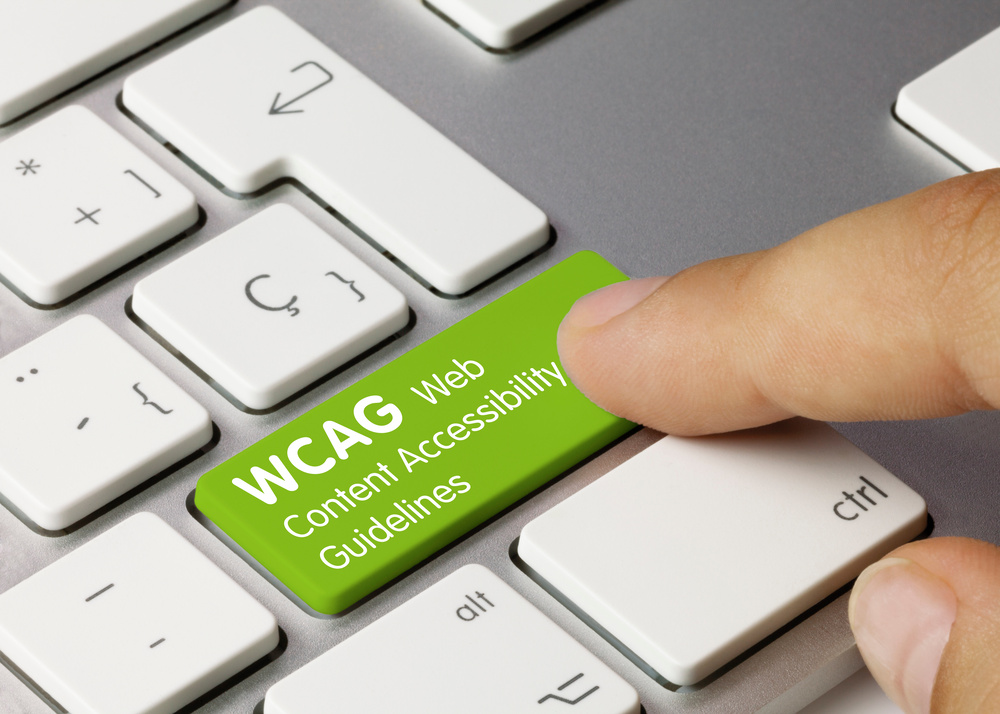Website Accessibility And SEO: How They Work Hand In Hand
Websites that rank highly on search engines are more likely to get more traffic. However, the competition doesn’t stop there. To use that traffic, you must be able to cater to potential customers. These customers may speak different languages, use different devices or browsers, and have different abilities. That’s why website accessibility and SEO go hand in hand.
Quick Links
What Is Search Engine Optimization (SEO)?
Search engine optimization makes a website’s marketing and technical abilities more advantageous to search engines. The goal is to improve visibility in organic or unpaid search results. For example, if you wish your website to be visible to the global market, you must adopt a multilingual SEO strategy. Doing so ensures that your website will appear in search engine results pages for different languages, resulting in increased traffic from international markets.
SEO has two different types: on-page SEO and off-page SEO. On-page SEO is the practice of optimizing individual web pages to rank higher on search engine results. It ensures that each page has unique, keyword-rich titles and meta descriptions, providing valuable and informative content, and optimizing your website’s HTML code and structure. Meanwhile, off-page SEO refers to building links to your website from other high-quality websites, improving your website’s search engine ranking from an external perspective.
What Is Website Accessibility?
Website accessibility ensures everyone can use and access your website, regardless of their ability or circumstance. It includes people with disabilities, those using different devices (such as mobile phones or tablets), those using other browsers, and those speaking a language different from the website’s default one.
There are many international standards for website accessibility, but one of the most widely used is the Web Content Accessibility Guidelines (WCAG) 2.0. These cover a wide range of accessibility issues, from ensuring text is legible and easy to understand, to providing alternative versions of the content for people who can’t access it in its original form.
How Does Website Accessibility Affect SEO?

Website accessibility is an important ranking factor for SEO. If your website isn’t accessible, it won’t likely rank as highly in search engine results pages. Search engine algorithms are designed to index and rank websites that provide the best possible experience for users. A website that’s not accessible won’t be able to provide a good user experience, and, thus, won’t rank as highly.
Additionally, some state laws require website accessibility. Non-compliance with their guidelines can result in legal actions, leading to a loss of search engine ranking and traffic. Take for example the Disabilities Act (ADA) in the United States. Title III, in particular, explicitly covers website accessibility for people with disabilities. If your website doesn’t comply with this, you could be sued. In the eyes of such laws, everyone deserves to access and use the Internet, regardless of their ability or circumstance.
Tips For Optimizing Your Website For Both Accessibility And SEO
You can do many things to ensure your website fares well in terms of accessibility and SEO. These include:
- Make sure everyone, including those with disabilities, can access your website. To do so, follow the WCAG 2.0 guidelines.
- Ensure your website is easy to use and navigate. Doing so will help people with disabilities and search engine crawlers index your website more easily.
- Use alternative versions of your content, such as text transcripts or audio recordings, to make it accessible to more people.
- Optimize your website for different devices, browsers, and screen sizes. This will help you cater to the needs of a much wider range of online users, as well as help your website rank higher in mobile search results.
- Use multilingual SEO to make your website visible to international markets. The main reason why businesses are going online is to reach more people, so make sure your website is accessible to as many people as possible by optimizing it for different languages.
- Make sure your website loads quickly. Visitors will likely leave if your website takes too long to load, and search engine crawlers will also penalize you for slow loading times. In addition, slow loading times can discourage users and hurt your SEO.
Takeaway
Website accessibility and SEO are two important factors to consider when creating or if you want to grow your website. Website accessibility is essential for SEO because search engine algorithms are designed to index and rank websites that provide the best possible experience for users. Additionally, website accessibility is required by law in some countries. That said, making sure your website is accessible will help you avoid legal trouble and improve your SEO.
You can do many things to ensure your website is accessible and optimized for both accessibility and SEO. Use the tips in this article to help you get started.
What Is WooCommerce Product Slider and Why Your Store Needs It
Why Do Product Images Matter So Much in Online Stores? When someone visits an online store the…
0 Comments9 Minutes
How to Streamline Your Customers’ Shopping Experience?
The goal for any online store is to make shopping as smooth as possible. When visitors move…
0 Comments8 Minutes
Strengthening Brand-Customer Relationships Through Gamified Loyalty Programs
Creating lasting connections with customers has become increasingly vital as the marketplace grows…
0 Comments6 Minutes
How to Use SEO and SEA Together in Search Engine Marketing
In digital marketing, search engine marketing (SEM) plays a critical role in improving online…
0 Comments10 Minutes
Content Marketing Growth Hacks: Real Shortcuts to Drive Traffic
Are you still lagging in content marketing? Sticking to these old strategies seems…
0 Comments10 Minutes
How to Build a Strong Local Following Using Social Media Marketing
In the days of likes, shares, and stories, local businesses have a golden opportunity to create…
0 Comments9 Minutes
Why WooCommerce is the Best Choice for Your Online Store?
WooCommerce stands out as a top option for anyone looking to build an online store. This platform…
0 Comments8 Minutes
How to Use AI-Powered SEO Tools for WordPress eCommerce
SEO is a critical factor in the success of any e-commerce WordPress store. As competition…
0 Comments11 Minutes








